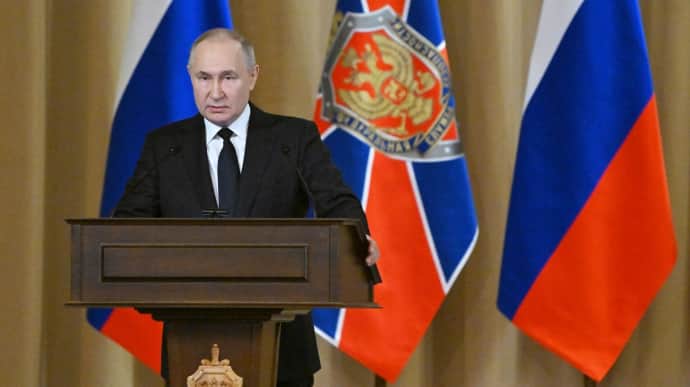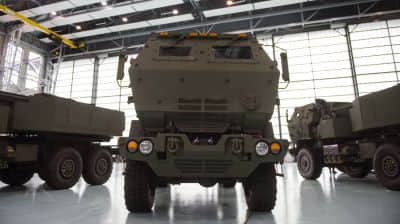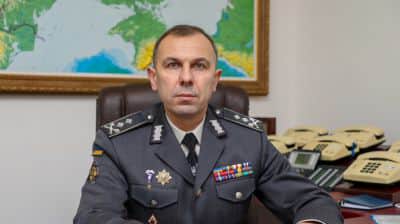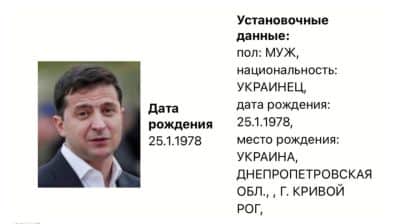ISW analyses why Putin invokes FSB after elections

Experts at the Institute for the Study of War (ISW) have said that Vladimir Putin is primarily invoking the FSB to emphasise that his regime is allegedly backed by an extensive security apparatus.
Source: Institute for the Study of War (ISW)
Details: Putin has portrayed the Federal Security Service (FSB) as a key guarantor of Russia's security and sovereignty after his so-called victory in the "presidential election", likely indicating that Russia's intelligence services and siloviki (Russian security officials with political influence) will continue to represent his main support during his fifth term in office.
Putin made his first major speech after his "victory" in the "elections" at a meeting of the FSB board on 19 March, praising the service for "ensuring Russia's security and sovereignty".
Experts note that Putin's appeals to the FSB were likely intended to remind his domestic electorate that his regime has the backing of an extensive security apparatus that the Kremlin has been trying to expand since the start of the full-scale invasion, especially after the failed Wagner Group coup in June 2023.
Notably, one of the biggest challenges to the stability of Putin's rule came from a silovik, the late Wagner financier Yevgeny Prigozhin, and Putin is likely keen to demonstrate that Russia's security forces are firmly united in support of his fifth presidential term and his military efforts in Ukraine.
"Putin, a former KGB officer himself, may be highlighting the FSB as an organisation that has his current favour, although Putin has traditionally pitted Russia’s security organisations and siloviki against each other to compete for his support and prevent any singular entity from amassing too much power," the report notes.
To quote the ISW’s Key Takeaways on 19 March:
- Russian President Vladimir Putin presented the Russian Federal Security Service (FSB) as a key guarantor of Russian security and sovereignty following his victory in the Russian presidential election, likely signalling that Russian security services and siloviki will continue to represent his core constituency in his fifth presidential term.
- Russia continues efforts to build a coalition to counterbalance the West by pursuing bilateral relationships with Iran, North Korea, and China.
- Armenia's Central Bank will reportedly ban the use of Russia’s "Mir" national payment system to prevent Armenia from falling under secondary US sanctions.
- Pro-Russian actors in Moldova are continuing efforts to support wider Kremlin hybrid efforts to destabilise Moldova.
- Ukraine’s European partners continue efforts to stand up significant initiatives to provide military support to Ukraine.
- The Russian military confirmed that Northern Fleet Commander Admiral Alexander Moiseev replaced Admiral Nikolai Yevmenov as acting Commander-in-Chief of the Russian Navy.
- Russian forces recently made a confirmed advance near Avdiivka on 19 March.
- Russian State Duma Defence Committee Chairman Andrei Kartapolov stated on 19 March that the Russian military will not increase the number of conscripts summoned during the upcoming semi-annual spring conscription cycle in comparison to the previous fall 2023 conscription cycle.
- Kremlin officials continue to implicate themselves directly in the illegal removal of Ukrainian children to other Russian-occupied areas of Ukraine and the deportation of Ukrainian children to Russia.
Support UP or become our patron!







